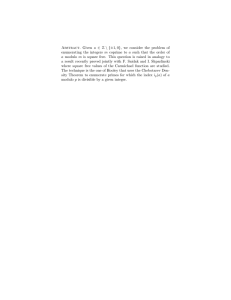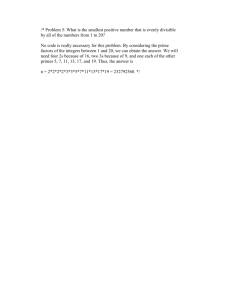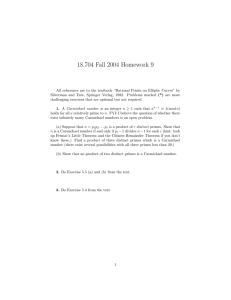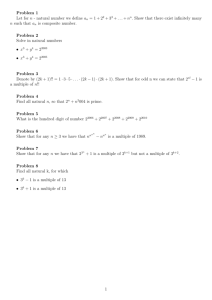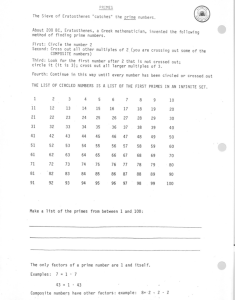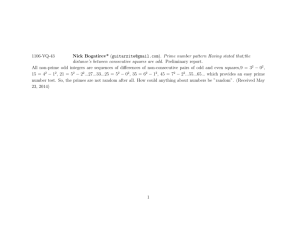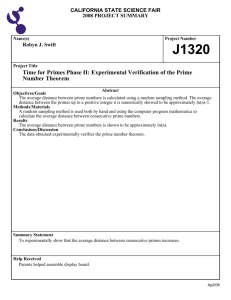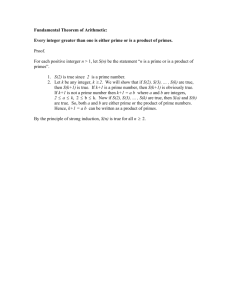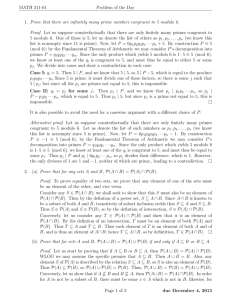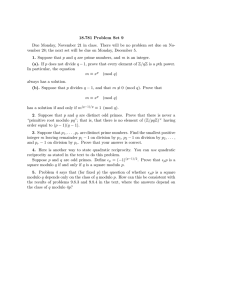Mich. 2015 NUMBERS AND SETS – EXAMPLES 21 GLT Some
advertisement
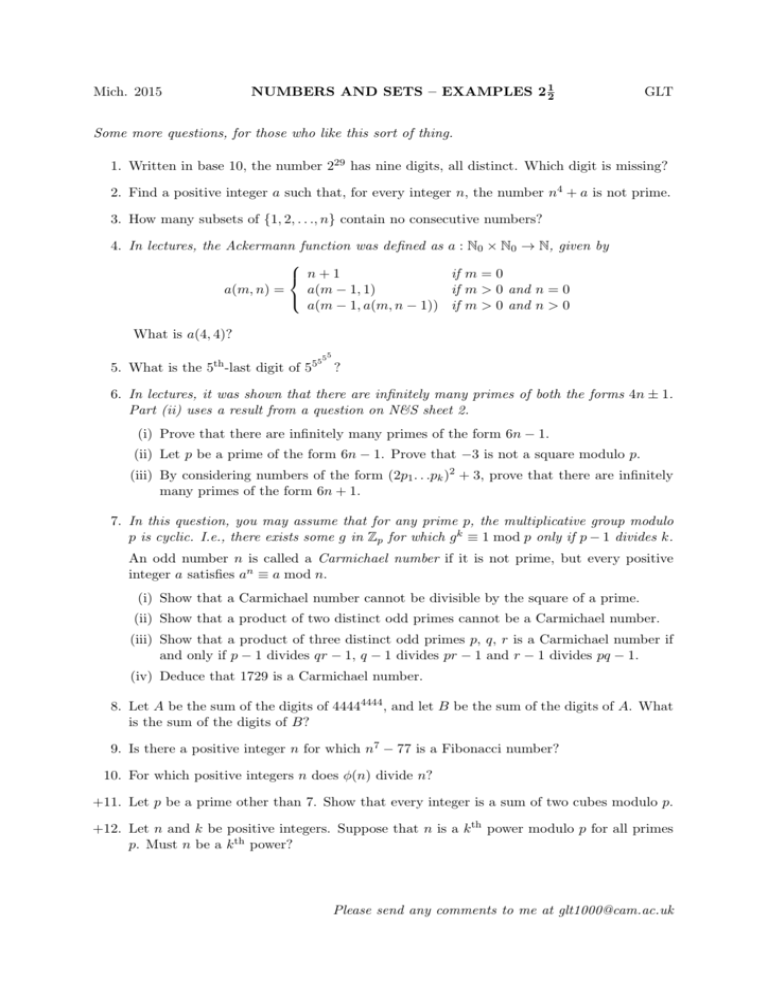
Mich. 2015
NUMBERS AND SETS – EXAMPLES 2 12
GLT
Some more questions, for those who like this sort of thing.
1. Written in base 10, the number 229 has nine digits, all distinct. Which digit is missing?
2. Find a positive integer a such that, for every integer n, the number n4 + a is not prime.
3. How many subsets of {1, 2, . . ., n} contain no consecutive numbers?
4. In lectures, the Ackermann function was defined as
n+1
a(m − 1, 1)
a(m, n) =
a(m − 1, a(m, n − 1))
a : N0 × N0 → N, given by
if m = 0
if m > 0 and n = 0
if m > 0 and n > 0
What is a(4, 4)?
55
5. What is the 5th -last digit of 55
5
?
6. In lectures, it was shown that there are infinitely many primes of both the forms 4n ± 1.
Part (ii) uses a result from a question on N&S sheet 2.
(i) Prove that there are infinitely many primes of the form 6n − 1.
(ii) Let p be a prime of the form 6n − 1. Prove that −3 is not a square modulo p.
(iii) By considering numbers of the form (2p1 . . .pk )2 + 3, prove that there are infinitely
many primes of the form 6n + 1.
7. In this question, you may assume that for any prime p, the multiplicative group modulo
p is cyclic. I.e., there exists some g in Zp for which g k ≡ 1 mod p only if p − 1 divides k.
An odd number n is called a Carmichael number if it is not prime, but every positive
integer a satisfies an ≡ a mod n.
(i) Show that a Carmichael number cannot be divisible by the square of a prime.
(ii) Show that a product of two distinct odd primes cannot be a Carmichael number.
(iii) Show that a product of three distinct odd primes p, q, r is a Carmichael number if
and only if p − 1 divides qr − 1, q − 1 divides pr − 1 and r − 1 divides pq − 1.
(iv) Deduce that 1729 is a Carmichael number.
8. Let A be the sum of the digits of 44444444 , and let B be the sum of the digits of A. What
is the sum of the digits of B?
9. Is there a positive integer n for which n7 − 77 is a Fibonacci number?
10. For which positive integers n does φ(n) divide n?
+11. Let p be a prime other than 7. Show that every integer is a sum of two cubes modulo p.
+12. Let n and k be positive integers. Suppose that n is a k th power modulo p for all primes
p. Must n be a k th power?
Please send any comments to me at glt1000@cam.ac.uk

